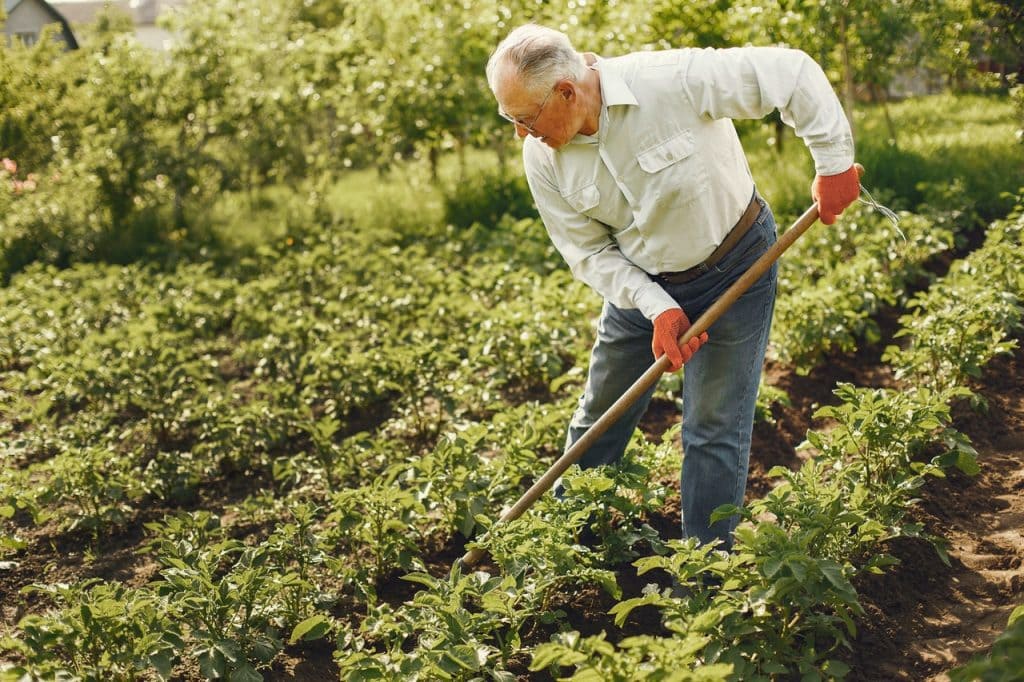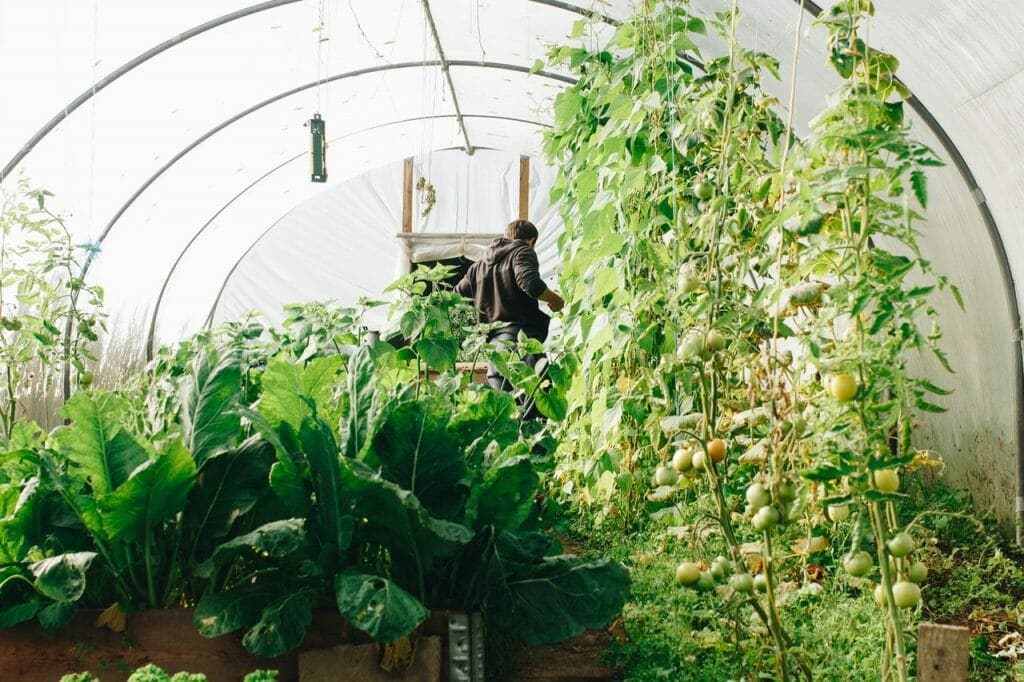Written by Admin and published on https://www.daviddomoney.com/.
Creating a dog-friendly garden will take time, but in the end you’ll be able to enjoy your dog and the pleasure of a pet-friendly green space in peace. As with other aspects of gardening, you can expect some trial and error, but we assure you there is a way to keep your love of gardening and dogs in relative harmony. As with most culinary plants, salvia will not generally be a problem with your pets. The good news is that you are unlikely to need any snail pellets to protect your salvias. A good variety for snail resistance is salvia x superba.
Ways to create a pet-friendly garden
Many pets are very social animals and most love to play outdoors whatever the weather, so a furry gardening companion can be a superb motivation to get out and enjoy your pet friendly garden more throughout the year.
However, some people worry that getting a new pet will wreak havoc on their prized beds and borders. Well, fear not – there are actually plenty of ways to create a pet friendly garden that you and your furry friend can both appreciate.
SAFETY FIRST
First and foremost, if you are getting a pet, or you already have one, you must ensure your garden is safe for them to enjoy. Here are a few things you could do to check that your garden is harmless to your pet:
• Find out which plants are potentially toxic to your pet. Then you can remove them or plant them in an area that they cannot access. If you’re unsure, there are many lists online that will be specific to your pet.
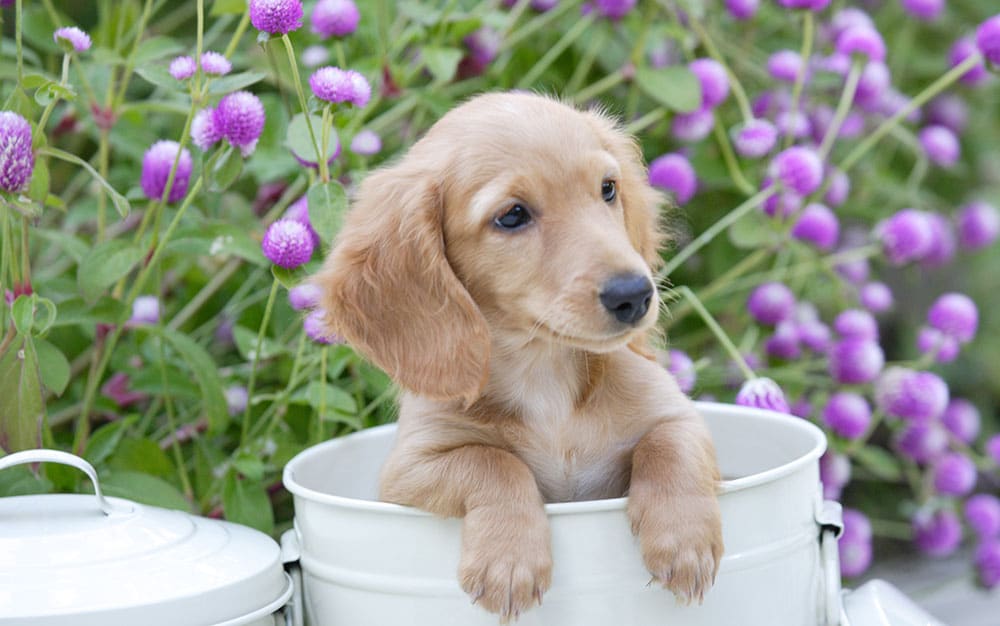
• Try to use organic, or pet-safe chemical pesticides and fertilizers.
• Restrict access to unsafe areas such as swimming pools and tool sheds, using gated fences.
PLANTS FOR PETS
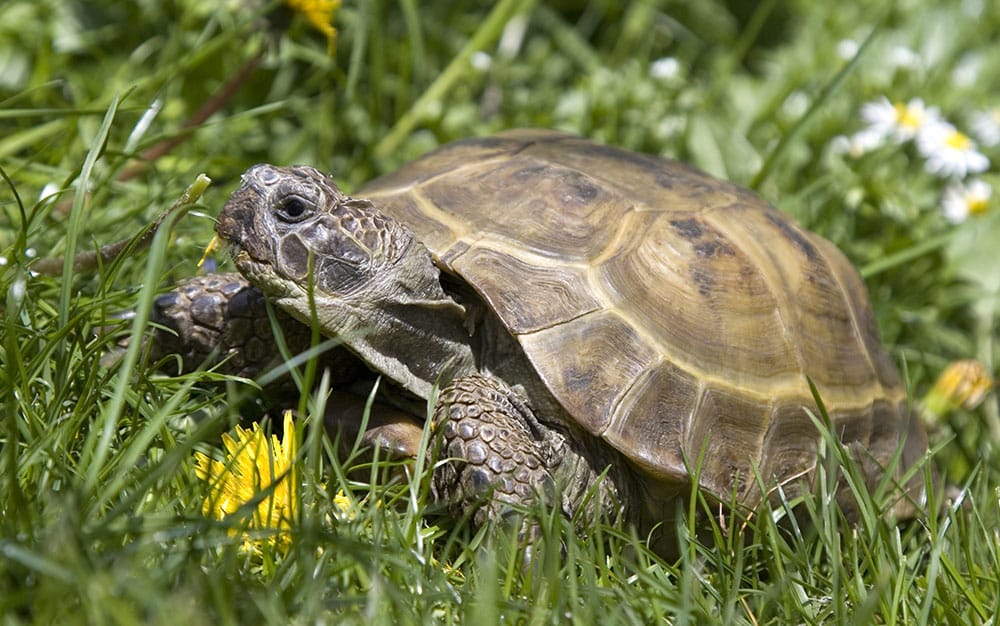
Tortoises love dandelions! Make a miniature dandelion garden for them to graze on.
Rabbits should be fed plenty of green leafy vegetables and carrots, so try your hand at growing your own for a constant supply. Read my guide to growing lettuce over winter here.
Peppermint in your garden will be helpful for your dog to nibble on if they suffer from indigestion or nausea.
Cats are generally strict carnivores, but they love the scents of catnip and thyme. Some say these plants can even give them a sense of temporary euphoria – so plant some if your cat is particularly grumpy!
DOGS
Dogs are incredibly social, friendly, and often obedient animals. If trained well as a puppy, they shouldn’t get up to too much mischief in your lovely garden. Here are a few things you can implement to keep your pup in check:
Create garden zones for your dog.
Make a designated play area, with a digging spot, shelter and perhaps some toys. Bury a bone or treats there to encourage play and digging in this specific area.
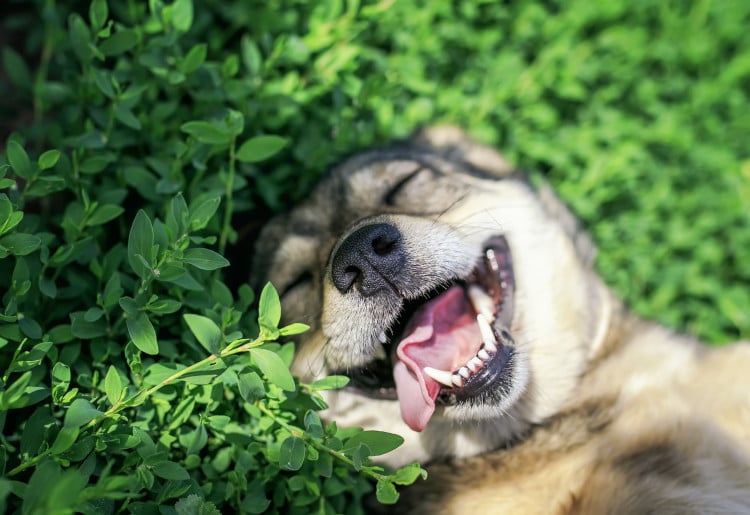
Try to train your dog not to run through borders the same way you train them not to climb on indoor furniture.
If your dog can’t seem to differentiate between the border and the grass, make a clear boundary. Do this using bricks or stones and move your dog away firmly and quickly when they overstep the boundary.
Keep your garden clean
You will want to encourage your puppy not to urinate on the lawn as this can cause brown patches; this occurs most often with female dogs. Find a designated toilet space and reward your dog when they use it.
Make sure to fence off your compost bin to stop your dog rummaging around in there and pulling compost out into your garden.
Design with your pet in mind
Dogs are territorial and will want to roam the perimeter where your fences and hedges are. Often you have some wonderful plants here that could get trampled. This instinctive behaviour is difficult to break, so another method is creating small stone paths at the back of your borders for your dog to use. What’s more is this stone paths can also look great.
You could also try raised beds and borders in your garden. Not only will these deter your dog from venturing in, but it will also bring some interesting levels to your garden.
CATS
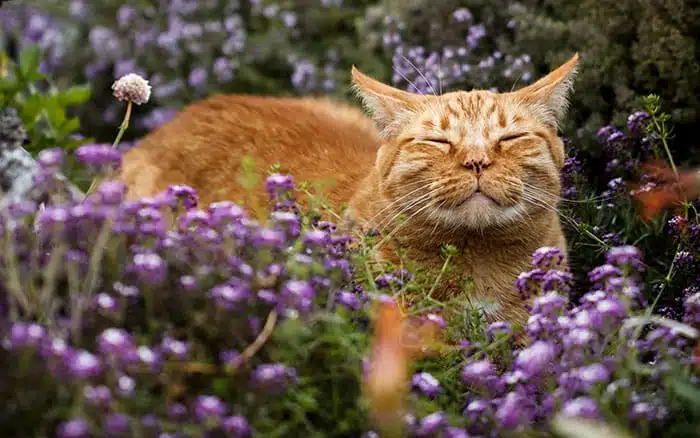
Cats are great climbers, and they love to play and hunt. There are plenty of ways you can create an exciting space that your cat will love and deter them from wanting to roam too far away into other more dangerous spaces.
Protect your borders
Cats are generally quite private about their toilet habits and will clean up after themselves by burying it afterwards. Stop this from happening in your vegetable plots or borders by finding a designated toilet spot and training your kitten to use it by placing a litter tray there when you first begin letting them outdoors.
To stop your cat rolling in your borders, use stone chippings or a moisture retaining mulch material such as manure because cats don’t like damp soil. Alternatively, use plenty of ground cover plants to cover soil.
Plant cat-happy plants such as catnip, or lavender. Cats enjoy these scents and it could help stop your cat from straying too far away from your garden and too near roads or other dangerous areas.
Create a play space with some old fencing or an unwanted log for a scratch post. Make sure there are plenty of shaded areas in your garden where your cat can also shelter from the elements.
Prevent conflict
Protect wildlife such as birds from your cat by keeping them indoors at dawn and dusk. Don’t place bird boxes and feeders low down on tree trunks where your cat can easily get to. Also, if you have a fishpond you may want to cover it with netting.
Cats are territorial and conflicts with neighbouring cats might be a source of anxiety for your cat and stop them from going outside altogether.
If this is the case, try to deter other cats from entering your garden by adding plastic mesh to the tops of your fences. Male cats are more dominant and less likely to be threatened by other cats so consider this when buying or adopting your cat.
RABBIT AND GUINEA PIGS
Rabbits and guinea pigs might primarily live in a hutch or cage, but it is important to give them opportunity to stretch their legs in larger areas of your garden. They will love to be allowed to bounce freely! So, here are a few measures you can take to keep them safe and happy during play time.
Prevent your pet getting lost
Make sure there are no small holes in your fencing or gate if you are letting your rabbit or guinea pig out into the garden.
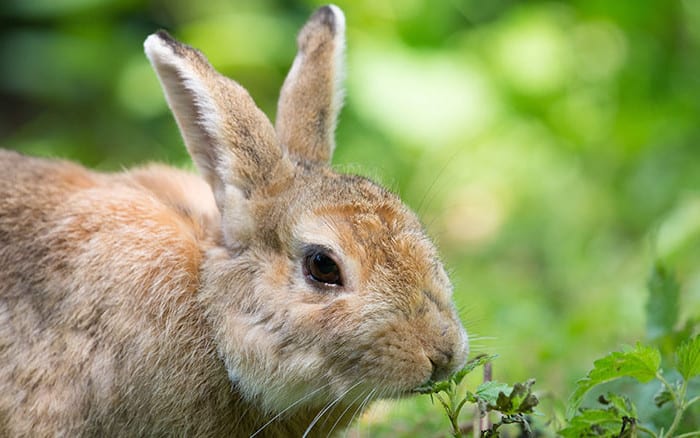
I would also recommend supervising your furry friend while they explore. This will ensure they don’t make a great escape, as bunnies especially are natural diggers.
If you are worried about predators, or can’t watch your pet the whole time, build or buy a large run for them. Move your run around to allow your lawn to recover.
Protect your plants
Smaller pets are generally not predatory, so prefer to hide in sheltered areas. Provide plenty of these and it will deter your pet from digging too many holes. Re-use some old plastic piping to create some fun tunnels for them to play in.
These herbivores will nibble on grass and other plants. They especially love your veg plot – so section that area off.
Now you can create the perfect pet friendly garden that not only stays looking gorgeous but also keeps your beloved animal safe and happy. Encouraging your pet to love and respect your garden in the same way that you do will mean you can both enjoy it to the fullest.
Original post here https://www.daviddomoney.com/ways-to-create-a-pet-friendly-garden/.

